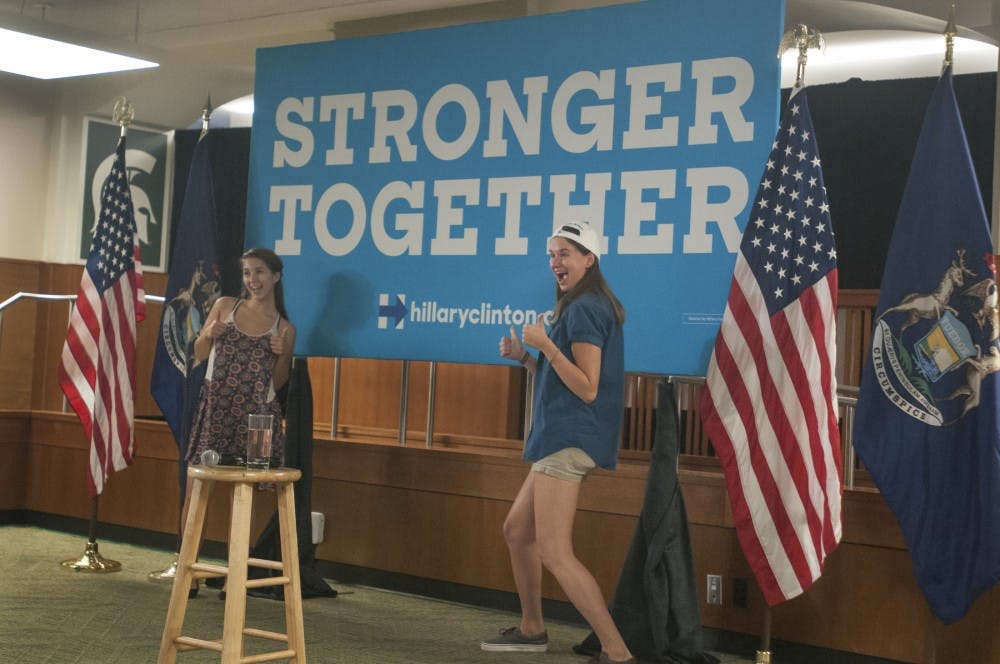As the election draws closer and opinions flare up and down campus, the culture of division that characterizes modern American politics shows its ugly face.
Nowhere can this be seen more clearly than when individuals come from off campus, be it famous politicians, children of famous politicians or right-leaning British "super villains." What's most telling about a university — and most universities in the nation — is the treatment many of these guest speakers face once they arrive on campus.
MSU has had a long history of campus activism, which in itself is something to be celebrated. But when that spills over into active shunning of speakers who don't fit into the narrative of the progressive culture of higher education, it reflects poorly on the school.
When The State News published a story announcing Chelsea Clinton would be speaking at MSU, some commented they disagreed with Clinton and her mother on certain things, but there was no mention of banning her from stepping foot on campus.
When it was announced that conservative commentator Milo Yiannopoulos would be coming to campus as a part of his "Dangerous Faggot" tour, the response was significantly more negative with one commenter calling it "hate speech."
A speaker has to be invited to campus and it has to be approved by the Office of Student Affairs and Services, MSU spokesperson Jason Cody told The State News in July. But merely allowing a minority voice on campus is not an endorsement of their views.
Another example of protests from dissenting voices was allowed on campus was the uproar over The Washington Post columnist George Will being invited to speak at commencement during the fall of 2014. Will previously wrote a column that was critical of the idea there is a culture of rape on campuses, and the opposition to him was fierce and determined.
Detractors said it was a slap in the face to sexual assault survivors, some accused him of being a "rape apologist" and both the Council of Graduate Students and the Associated Students of Michigan State University held emergency meetings to pass resolutions asking the administration to rescind his invitation.
For those who believe conservatives are an oppressed class on campuses, the George Will situation merely gave them ammunition, especially since far-left filmmaker Michael Moore spoke at that very same commencement.
When college is supposed to be a place where different ideas and a diverse group of people come together, labeling a dissenting view as hate speech squanders the very idea universities were founded on.
The State News Editorial Board is made up of the Editor-in-chief Jake Allen, Managing Editor Cameron Macko, Diversity Representative Alexea Hankin, Staff Representative Stephen Olschanski, City Editor Josh Bender, Campus Editor Rachel Fradette, Sports Editor Casey Harrison, Features Editor Connor Clark and Copy Chief Casey Holland.
Support student media!
Please consider donating to The State News and help fund the future of journalism.
Discussion
Share and discuss “Campus culture should welcome, extend tolerance to conservative figures” on social media.







